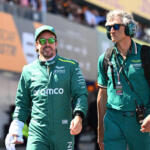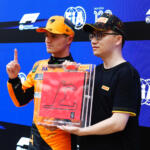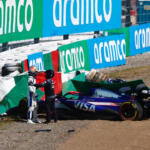I SEE RED, I SEE RED, I SEE RED – SEBASTIAN VETTEL
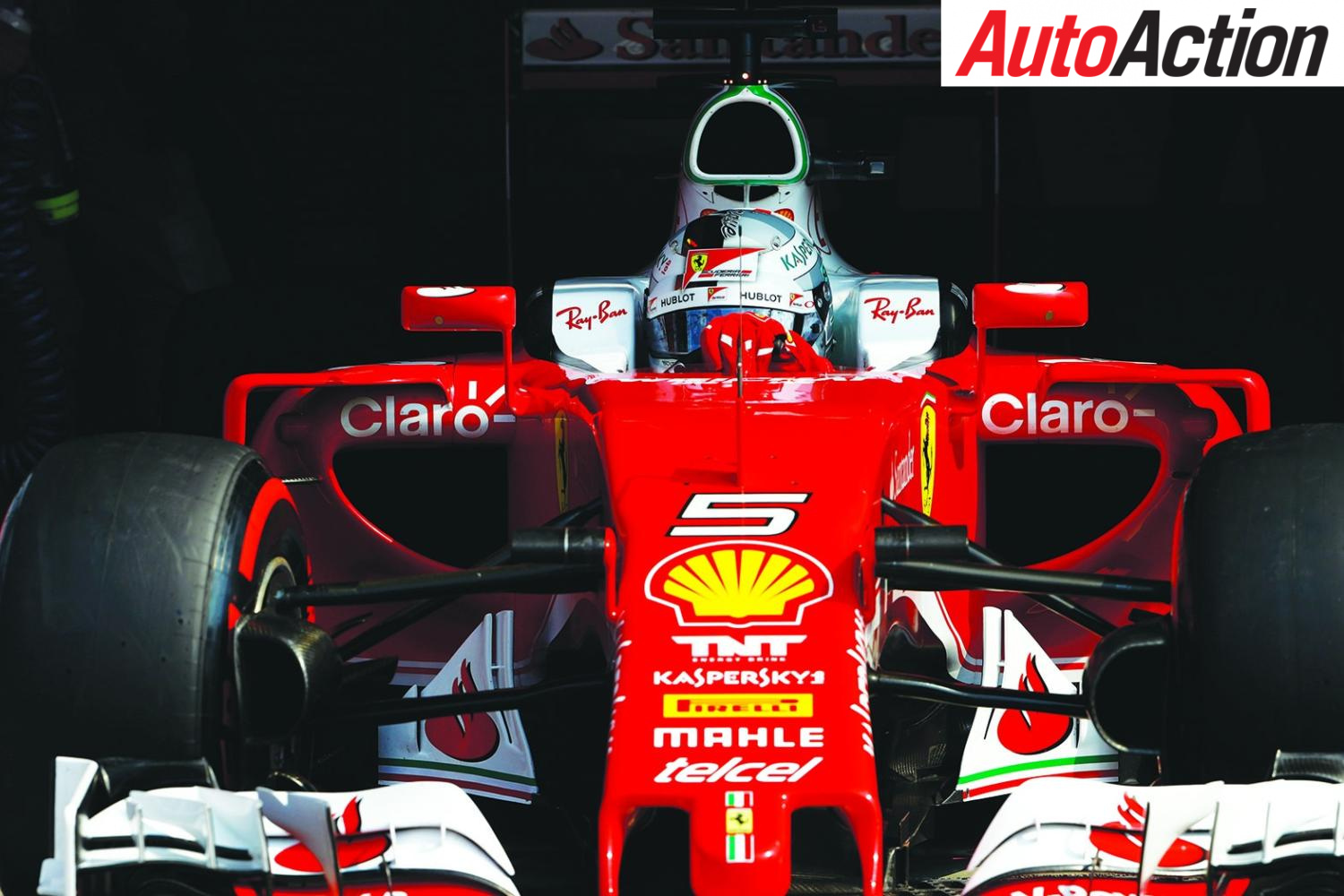
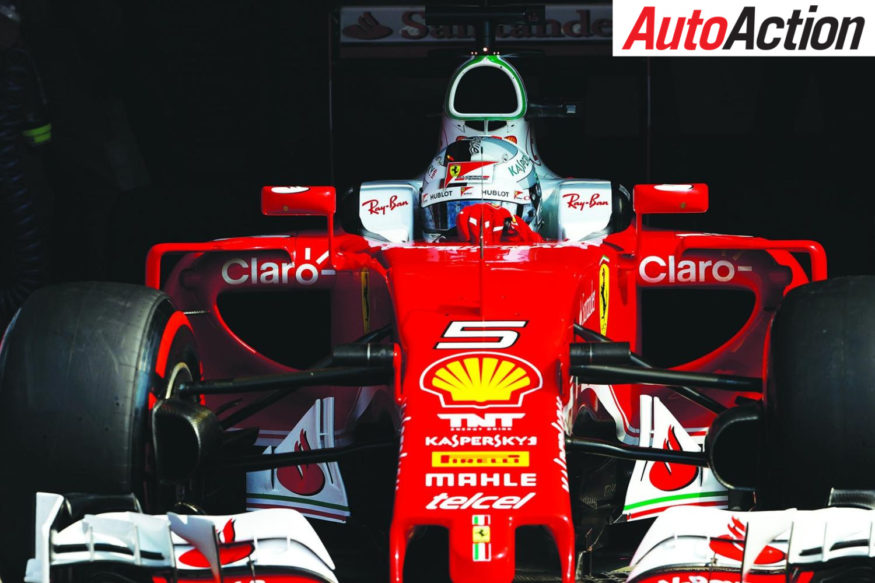
Sebastian Vettel racing for Ferrari at Monza – Photo: LAT
In his second season at Ferrari Sebastian Vettel has struggled – not to beat Mercedes-Benz, but to be on terms with his old team, Red Bull Racing. He is hungry for success, and soon
By DAN KNUTSON
It was in October two years ago when Sebastian Vettel shocked the racing world with the announcement that he would leave the Red Bull team and join Ferrari in 2015.
On one hand it was understandable because just about every Formula 1 driver would jump at the chance to drive for the legendary Prancing Horse team. On the other hand, Vettel had won four drivers’ world championships with Red Bull whereas the last time a Ferrari driver earned the title was back in 2007 with Kimi Raikkonen. Even the talented Fernando Alonso was not able to win the championship during his tenure at Ferrari between 2010 and 2014.
As his second season with Ferrari wound down, Vettel sat down with Auto Action to talk about the past, present and future, the ups and downs for him and the team, and the unique atmosphere at Ferrari.
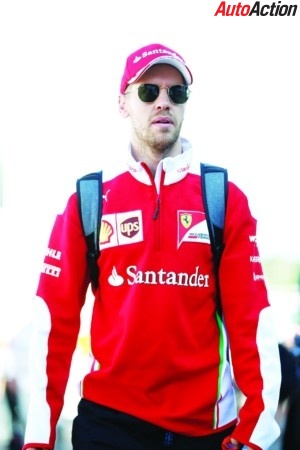
Sebastian Vettel at his home Grand Prix at Hockenheim – Photo: LAT
Things started out well in 2015 as Vettel won three races, snatching them away from the dominating Mercedes team. Vettel failed to win any of the first 19 races of this season, but he did visit the podium with his three second and three third places.
“Last year we had three opportunities where we could win and we nailed them,” he says, “and we had opportunities where we could be on the podium and we nailed them. But I don’t think that’s called over performing, that is doing what we want to achieve and doing the job right.
“Now this year you can say that in many ways we’ve underperformed. We’ve had many races where we didn’t finish and we could have finished them in very good positions. For example, the pace in Russia and Bahrain was very good. We had races where we could have won, for example Australia, so you can argue that when we had the chances we didn’t do our best.
“But it has also been a very rough year with things happening to us. If they happen to other people it also takes them out. If you blow a tyre in the middle of the race when you were easily on course for a podium finish, stuff like that, when it happens, it doesn’t help. And it sort of summarizes the season.”
How does Vettel summarize his own performance this season?
“It’s been up and down,” he reflects. “Over the winter we had a good feeling for the car. Here and there we struggled to extract the best out of the car, particularly in qualifying it has been a bit up and down. But overall on paper it looks quite a bit worse that it has been so far. It always depends from what sort of expectations you have, and it’s not a secret we have very high expectations. I have very high expectations of myself. Trust me, when I’m not delivering or getting out of the car everything I think it has, I’m not happy with that. In that regard it has probably also been up and down.”
Ferrari is unique in racing and indeed the world of sports – with the exceptions of events such as the Olympics and the football World Cup – in that it is a national team. All of Italy wins and loses, suffers and celebrates with Ferrari.
“Ferrari is a way of life in Italy,” Vettel asserts. “The Italian culture is different and the awareness for Ferrari is massive. There might be what you’d call an extra burden to carry in bad times, but that becomes an extra boost in good times. We’re here to try and turn things around and turn them into good times.”
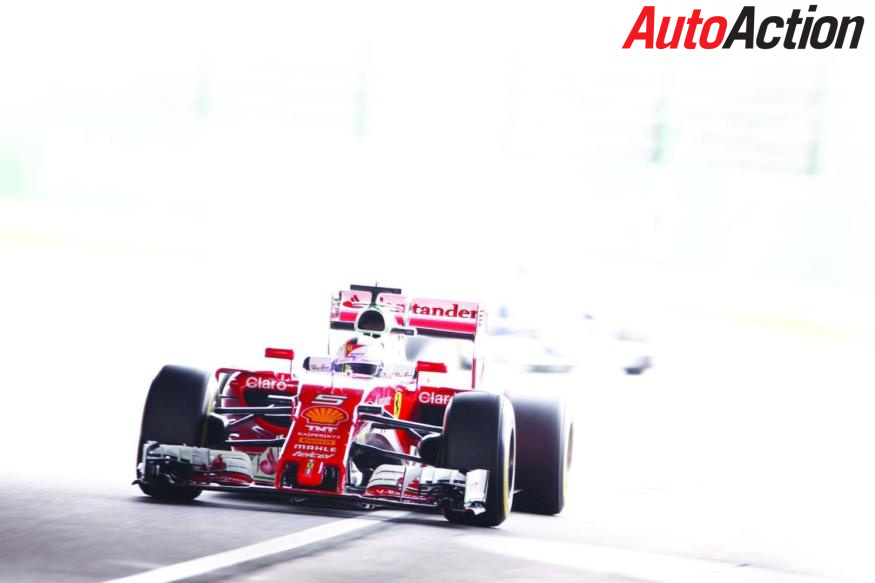
Sebastian Vettel racing at Suzuka – Photo: LAT
Ever since Ferrari was formed it has had an up and down relationship with the Italian media which sometimes highly praises and sometimes harshly criticizes the team and its drivers. Again, this is a nationwide phenomenon. How is Vettel getting along with the Italian media?
“To be honest, the first reaction last year was that it isn’t that bad,” he replies. “I think Red Bull also has an up and down relationship with the media – every team has that. But it’s a proof that, different from other countries, they really care in Italy. The culture is different as well. You need to understand how the people think and the culture behind them. But the importance of Ferrari in Italy is a great thing that’s very positive. Of course when you have a bad day, then the echoes the day after are probably worse than elsewhere. But in general the awareness Ferrari generates is unique, and our least ambition is to keep it that way. If anything, we want to make it even bigger, that’s what we’re working on.
“Trust me, believe me, when I say we’re not happy with our performance so far. If we could change it in a day we would, but the competition you’re up against is not a bad one. It’s not like the other people don’t know what they’re doing – you’re not fighting weak teams. Currently we find ourselves behind Mercedes, fighting with Red Bull. We are talking about being second or third best team.
“It’s also a question of respect. In that regard that you can’t say being second or third is completely awful, because we have to respect the fact the other teams are doing a good job. If you are just behind them, that doesn’t mean you’re a complete disaster. It means you’re not as good, and the level of our performance is very high. Nevertheless it’s not satisfying.”
Does it change the atmosphere inside the team when there’s criticism in the Italian media? Do the mechanics and technicians get affected by it?
“Yes,” Vettel says. “Everybody in the team is interested and everybody is reading the papers. But in general the important thing is to inform the people internally and that’s what we’re doing, so everybody knows what’s going on. I don’t think it’s nice when you read stuff that is not so good, but if the criticism is correct then you have to live with it. Many times a couple of things have been blown out of proportion, but it’s up and down. The rule of thumb is that you’re never as good as they make you and you’re never as bad as they make it. That usually works quite well.”
Formula 1 cars will change radically next year with new technical regulations that will make them three to five seconds a lap faster due to things such as wider tires and increased aerodynamic downforce. It offers an opportunity to shake up the pecking order.
“Speaking of 2017 you need to be careful,” Vettel says. “It is a completely new set of rules, and at some point you decide what path you want to go on. So does everyone else. Usually there is not one right and wrong, so there are many, many different philosophies and ways. Obviously because so much is changing next year, it could be many things.
“The fact is that this team is working well together, and the work inside the team has improved massively. Don’t forget we are a big team. We have a lot of people employed, and the secret is not just to get the right people or to get the people to work. The secret in many ways is also to get the people to work with each other and so on. That is something that has been tremendously improved, and ultimately makes us confident that we are heading the right way.”
As Ferrari heads in the right way, will the legendary team have more ups than downs next year? Vettel certainly hopes so, as do the nation of Italy and Ferrari fans around the world.
The Aussies
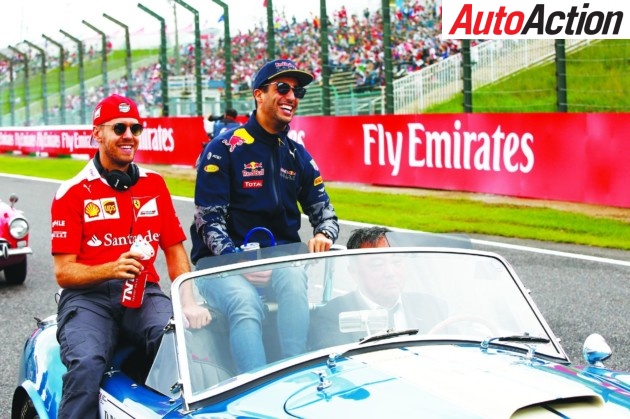
Former team mates Sebastian Vettel and Daniel Ricciardo – Photo: LAT
Sebastian Vettel had two Australian teammates at Red Bull – Mark Webber and Daniel Ricciardo. Looking back, how does he compare the two?
“They’re completely different characters,” Vettel says. “I would also say they have completely different driving styles. I think Daniel has a very good feeling for the tyres and is generally a lot smoother than Mark, which, with the current tyres we have in Formula 1, is a strength. They’re very different, let’s put it that way. Of course Daniel is a lot closer to me because of the age gap, but now that I’m getting older I have a very good relationship with Mark.”
Things got a bit icy between Vettel and Webber at times as Webber believed the team would favor Vettel. And then there was the infamous “Multi-21” drama in Malaysia 2013 where Vettel ignored team orders and stole the victory from Webber. But time is healing the wounds.
“We always shared huge respect for each other because we could always see what the other guy was doing,” Vettel says.
“Obviously, if you look at the results, most of the time the better result was for me, the better outcome, but what people strongly forget is that how close it was. The battle was so intense at times because it was so close. If it was always a straightforward walk in the park for one or the other side, then it’s not that intense.
“The intensity was definitively there, at times, but looking back, I think that’s what made it so special. I don’t remember the days where I won the race and he finished fifth; what I want to say is that what you remember is the emotions you live through. What you remember is the intensity, the bad times. Now that we’re both mature enough, both of us, we look back and actually enjoy that we had these types of times. As I said, the relationship now is very good and we get along very well.”
After the latest interviews and features? Pick up a copy of Auto Action magazine, in stores every second Thursday. Also follow us on social media Facebook, Twitter and Instagram for all the latest news.


